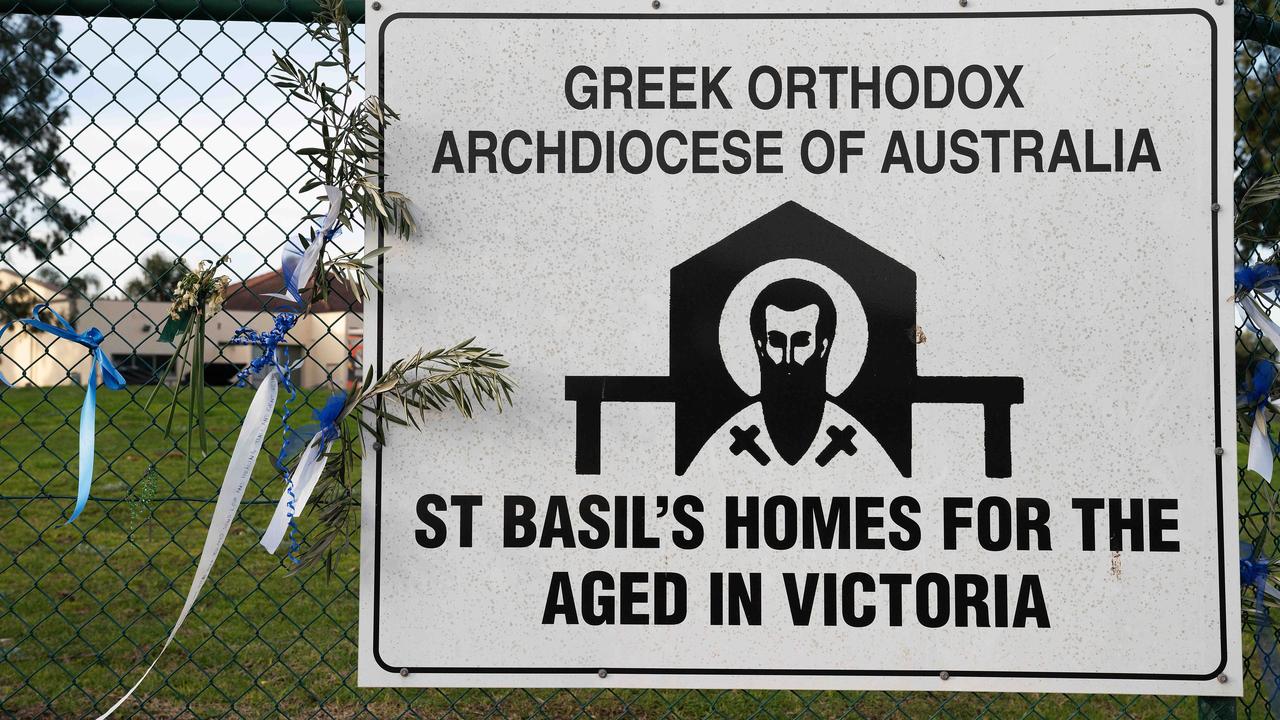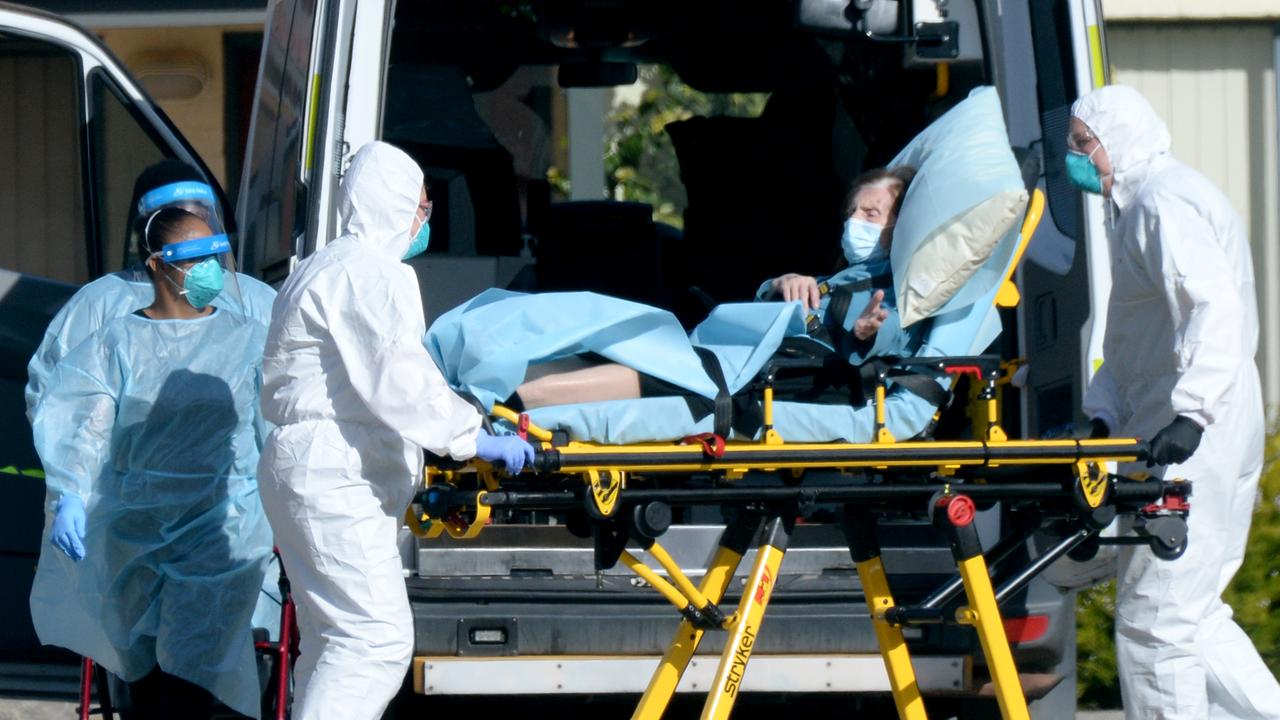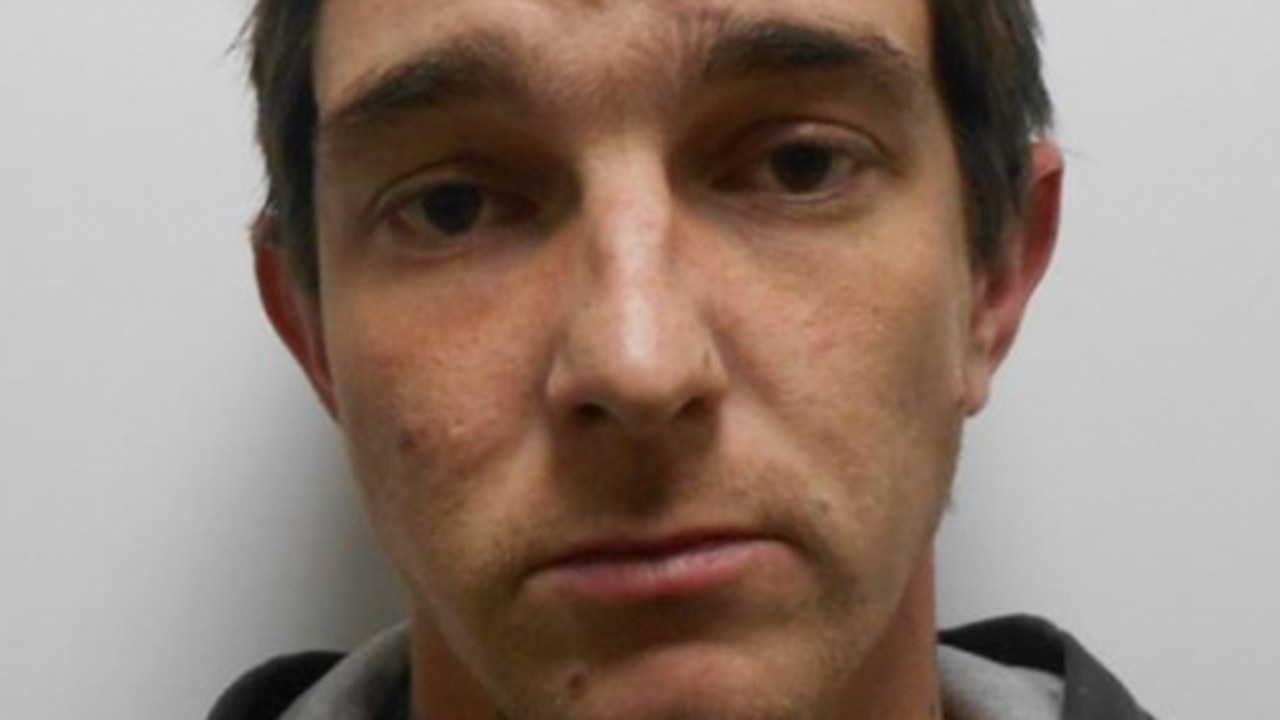Testing delayed, false sense of confidence within industry led to St Basil’s outbreak
Experts have revealed the ‘major flaws’ that led to Australia’s deadliest Covid-19 outbreak, which claimed the lives of 51 people.
An infectious disease expert has told an inquest into the St Basil’s aged care outbreak that deaths could have been avoided if devastating testing delays were avoided.
The virus, paired with severe neglect, claimed the lives of 51 residents at the Melbourne facility, after gaps were revealed in infection management during the state’s deadly second wave last year.
A coronial inquest has revealed horror mistakes into the management of the outbreak, including that a carer who brought the virus into the home was allowed to work for several days despite telling management her family had been unwell.
The inquest on Monday heard the testing of residents and staff was also significantly delayed, and by the time the results were known, the virus had spread rapidly.
Infectious disease expert Professor Lyn Gilbert said a several-day testing delay proved fatal for the facility.
“I think (the deaths and spread) was almost inevitable,” Professor Gilbert told the inquest.
“It might well have not been as bad if that had happened sooner - that delay was a really major factor in what happened subsequently.
“The outbreak was so well established by the time they knew how bad it was that only a fairly drastic response at that stage would have mitigated the situation

The inquest heard there had been an underestimation of how severe Covid-19 was within the industry in 2020.
Many aged care facilities at the time believed they were prepared for an outbreak and those affected by serious outbreaks, including Dorothy Anderson Lodge and Newmarch House, would have benefited from being receptive to help.
Infectious disease expert Adjunct Professor Alan Lilly, who fronted the inquiry on Monday, said he believed there were many facilities who marked themselves highly in preparation but had a false sense of confidence.
“There was probably the view across the sector and in many pockets at least that it was unlikely to be replicated because often people thought their own environment was better prepared,” he said.
“And to a certain extent people were also somewhat fearful of the spotlight being thrown on their own organisation. And that fear was then compounded by having to admit for some lifters within organisation, their perception was that they would be considered as a failure if they actually identified they had weaknesses within their own systems.”

The inquest heard an investigation into the outbreak had been significantly held back by St Basil’s management, who had been uncooperative and only communicated with investigators through lawyers.
The operators have since asked to be excused from giving evidence before the coronial inquest for fear of incrimination.
The experts agreed initial outbreaks at Dorothy Anderson Lodge and Newmarch House in Sydney should have served as a warning to St Basil’s.
“I’d like to think that with the experience of Dorothy Anderson Lodge, that might have alerted some of the Victorian facilities to the fact that it’s not just a walk in the park flu,” Professor Gilbert said.
“One of the geriatricians who was involved warned the Victorian Department of Health that this would happen at St Basil’s.
Adjunct Professor Lilly said he believed it would be beneficial for aged care operators to agree to co-operate with investigations to be eligible for a licence.
“It encourages the sort of transparency which we’re seeking,” he said.
“(There may) be other events in the future where having that provision in existence would be helpful, especially since the aged care sector is charge with caring for some of the most vulnerable residents within our community.”
rhiannon.tuffield@news.com.au
Originally published as Testing delayed, false sense of confidence within industry led to St Basil’s outbreak


